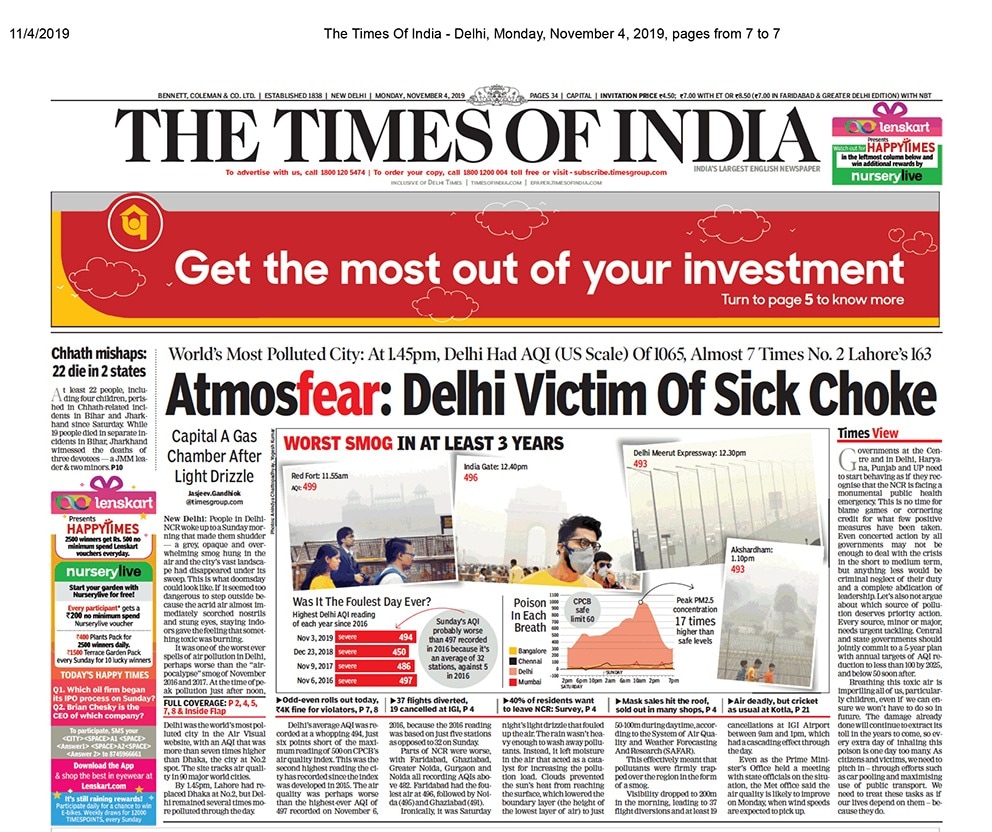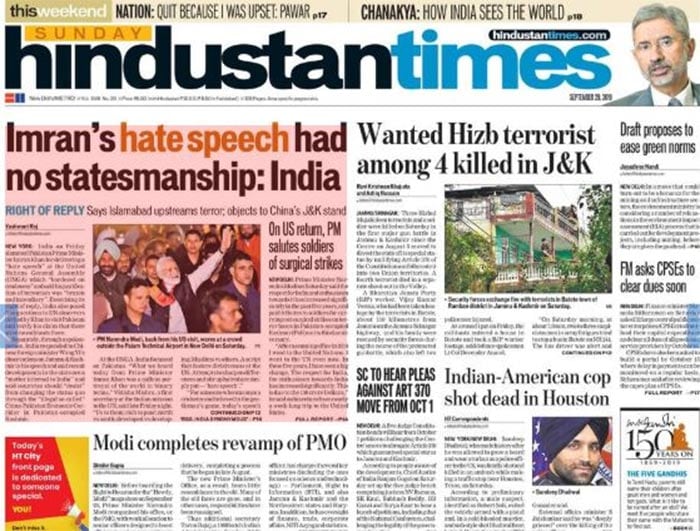

- #Time of india news headlines archive#
- #Time of india news headlines full#
- #Time of india news headlines free#
Times Group as a news agency, reaches out a very wide audience across Asia and drawfs every other agency in the quantity of english articles published per day. It contains approximately 3.3 million events published by Times of India.
#Time of india news headlines archive#
This news dataset is a persistent historical archive of noteable events in the Indian subcontinent from start-2001 to mid-2020, recorded in realtime by the journalists of India. Now the poor, being equipped with basic amenities, are making efforts to reduce their poverty,” he said.Dataset Card for Times of India News Headlines

That’s why we decided to rapidly connect every citizen of the country with these basic facilities. “That is why all slogans of ‘Garibi Hatao’ remained ineffective. He added that earlier, a large section of people were deprived of these basic amenities and so they had no time to think about anything else. On the government’s urgency about providing the basic needs to people, Modi said this is being done after learning lessons from the past. He said only in Madhya Pradesh, more than 50,000 masons have been trained of which nearly 10,000 are women. Stating that the government’s focus has been to address poverty and extend best facilities, he said, “The houses that you are getting are not just meant for living, I feel these are ‘forts’ which will stop the entry of poverty inside and will also enable you to get rid of poverty.” The PM also referred to how the flagship housing scheme has generated jobs and given a big push to other industries. Modi said his government has brought huge transformation by bringing governance to the doorstep of people rather than public visiting offices and getting harassed as he cited the rollout of different flagship schemes. The PM said due to this, the scheme has now become a tool for social and economic empowerment.
#Time of india news headlines full#
Taking a dig at earlier governments that regulated the construction of houses for the poor, he said the current government gave full liberty to the owners to take their own decisions on design and preferences. He said the new houses under the flagship PMAY are not just four walls, but are equipped with toilets and electricity, water and gas connections. “Now, even lakhs of poor, especially women, can also move into houses of their own on an auspicious day like this,” said Modi. The ‘Griha Pravesham’ ceremony for 4.5 lakh beneficiaries coincided with the auspicious occasion of ‘Dhanteras’ and Diwali and Modi emphasised that previously the two occasions had so far been marked by only the rich and resourceful purchasing expensive assets like houses and cars.
#Time of india news headlines free#
He, however, drew a sharp distinction between “revdi” and genuine welfare schemes like provision of free foodgrains for more than two years during the pandemic and construction of houses for the poor.

Modi said there has been a stream of letters from taxpayers to him, protesting against freebies and a large section is now gearing up to join the challenge to the ‘freebie culture’. Modi’s remarks, in his virtual address to beneficiaries of PM Awas Yojana, are seen as a significant move to tap into the resentment of taxpayers over their money spent on freebies, defined as revdi by him, and enlist their support for his campaign for curbing fiscal profligacy by governments. When this same taxpayer sees that free ‘revdi’ is being distributed with the money collected from them, he feels pained the most,” Modi said while distributing titles of 4.5 lakh houses built under PM Awas Yojana for the poor. Today, crores of taxpayers in the country are satisfied with the great service they are doing by helping to feed crores of people during the Corona period.

“When the taxpayer feels that his money is being spent in the right place, he or she also feels happy and keeps paying more tax. NEW DELHI: Prime Minister Narendra Modi said Saturday that taxpayers resent their hard-earned money being splurged away on freebies, but are satisfied when the money is spent on welfare schemes for uplifting the poor.


 0 kommentar(er)
0 kommentar(er)
